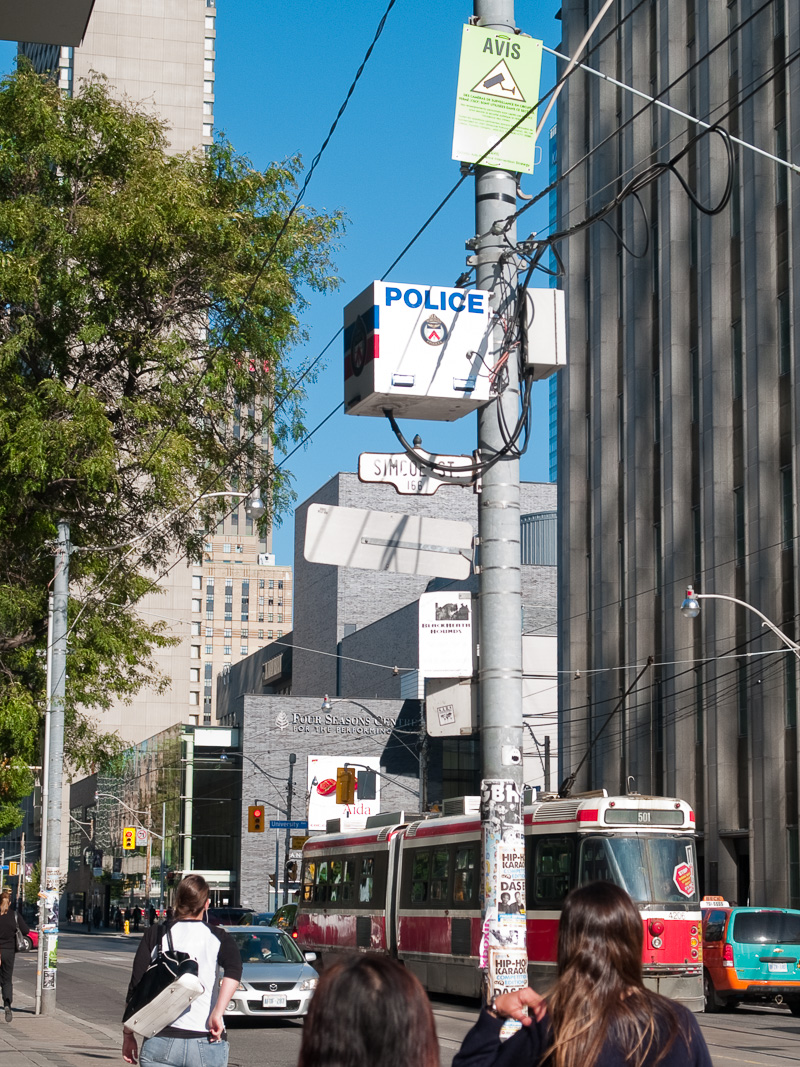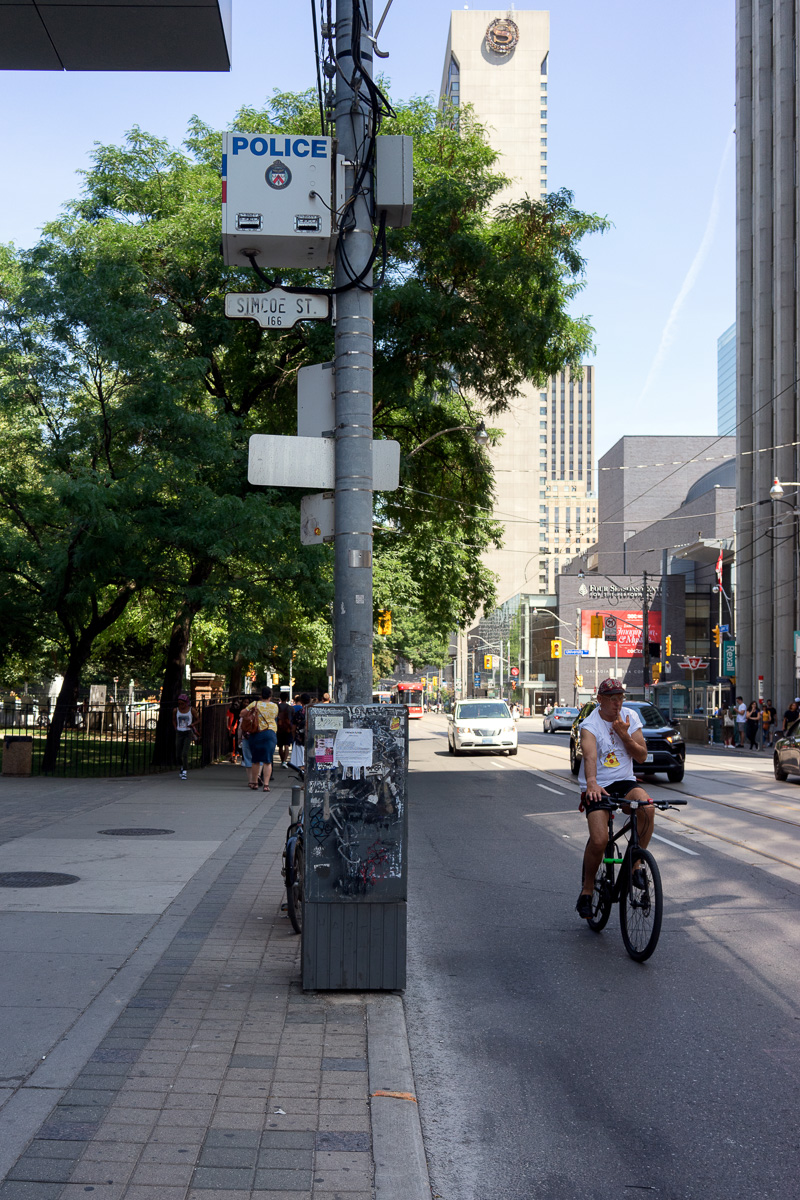
As preparations got underway for the G20 Summit in Toronto, one of the fears critics had expressed was that heightened surveillance would become a permanent situation for residents after the event was over. Have all the cameras come down yet? I note this surveillance camera at the intersection of Queen St. W. and Simcoe St. Was it already there before the Summit? It wasn’t there last April when Google Streetview rolled through the neighbourhood.
The G20 provided something analogous to a negotiating opportunity for authorities. Let’s suppose I’m the police chief and I’d love to add 20 surveillance cameras to the city’s growing roster of electronic eyes. If the G20 lets me temporarily add 70 cameras (as reported by CBC News) which I implicitly threaten to leave in place, and activists push back, then I can assume the posture of a magnanimous defender of civil rights by removing 50 cameras. I get what I want and the activists go away feeling like they’ve accomplished something. In fact, the activists have made significant concessions. In these conservative times, security always trumps freedom.
One of the dumbest arguments — and I hear it all the time — is this: “If you’re not doing anything wrong, then you’ve got nothing to fear.” I heard something similar from police officers during the Summit. If you refused to let them search your bags, some (many? all?) police inferred probable cause from your refusal and used that to magically legitimize an illegal search. Again we hear the logic: if you’ve got nothing to hide, then why would you object to a search of your bags?
There are any number of ways to answer this argument. For example, there’s the reductio ad absurdum answer which, admittedly, sounds like a Harry Potter spell. Imagine the cops using this reasoning to do an arbitrary rectal exam: “You aren’t carrying any drugs up your ass, are you? Well then, what could you possibly find objectionable about me sticking my hand in there?” This rationale for submission to authority applies with equal force to increasingly absurd actions (anal probes, vivisections, naked marches through the tundra) and so it can’t possibly be correct.
A more down-to-earth argument looks at the nature of negotiation and works from analogy. I would put it to a police officer like this:
Police belong to a trade union. The union negotiates with management (the municipality) about issues like compensation and working conditions. Suppose the police contract is up for renewal and both parties are at the bargaining table. The sticking point for these negotiations is salary, but there are other issues too, including retirement benefits, drug plan, spousal benefits, etc. There’s also talk about a new technology that will assist police in rare situations. No one on the local police force has ever been in such a situation yet, but it’s something to think about in the future. Imagine how police would respond to a union that decided because it didn’t really need to include the new technology issue in its current round of negotiations, it would give up the right to negotiate the issue in the future. Even though the police didn’t need the technology right now, they would yell bloody murder. The new technology issue could have been a bargaining chip in a future round of negotiations. Or it might have turned out to be a central concern at a later date. In the context of labour relations, to give up a right simply because you don’t need it is, at the very least, imprudent.
The same reasoning applies by analogy to civil and human rights. The fact that you don’t need to exercise them does not warrant giving them up. And in the context of security, it does not give rise to the inference of probable cause. Yes, people with something to hide will refuse to permit searches. But so should people whose conduct has created no probable cause.
We need to get rid of the rest of our surveillance cameras. We need a return to a more civil — and civilized — time. Are we really better for being watched?
Update: As of August 2nd, 2019, the Police surveillance box installed in anticipation of the 2010 G20 Summit and Simcoe & Queen St. W. has not been removed.

